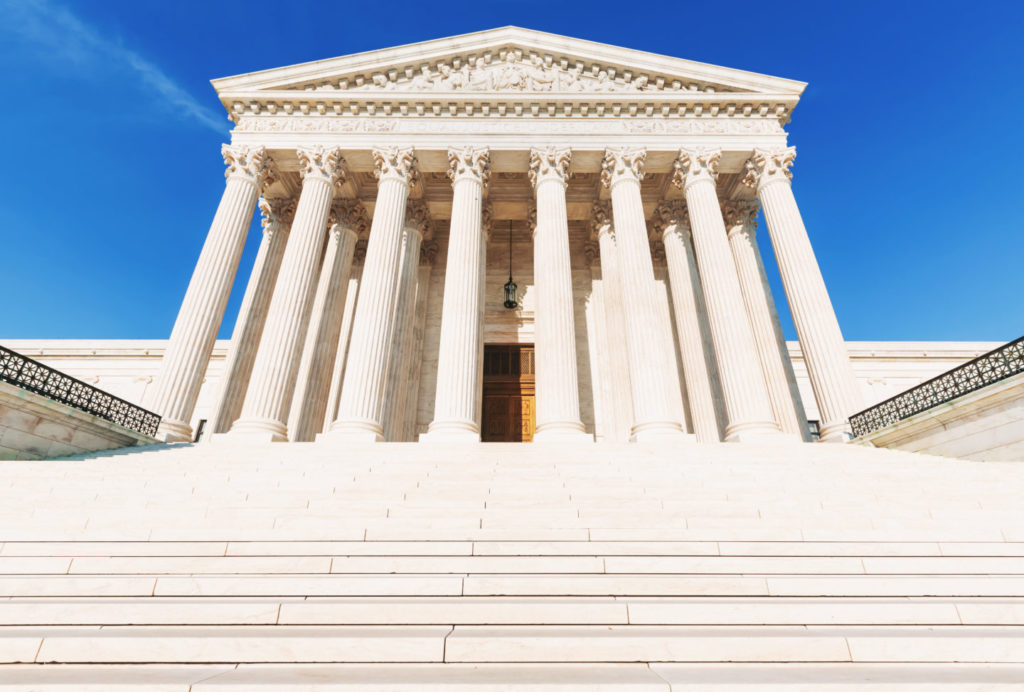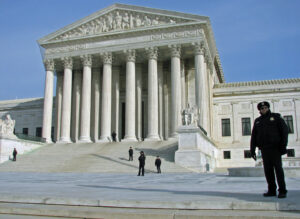Ten states ban abortion, with exceptions, after Supreme Court ruling
(The Center Square) – So far, 10 state attorneys general have announced that abortion is now effectively illegal in their states after the Supreme Court overturned two landmark abortion cases, Roe…

(The Center Square) – So far, 10 state attorneys general have announced that abortion is now effectively illegal in their states after the Supreme Court overturned two landmark abortion cases, Roe v Wade and Planned Parenthood v. Casey.
In Dobbs v. Jackson Women’s Health Organization, the Supreme Court ruled, “The Constitution does not prohibit the citizens of each State from regulating or prohibiting abortion. Roe and Casey arrogated that authority. We now overrule those decisions and return that authority to the people and their elected representatives.”
Thirteen states have trigger laws that enable the states to enforce laws already on the books banning abortion. On Friday, nine of them announced abortions were banned effective immediately. By Monday, a tenth state joined them. Texas’ ban, for example, doesn’t go into effect immediately.
Missouri was the first to announce its trigger law was in effect; Mississippi, the tenth. An estimated 23 states are expected to ban abortion in some capacity after the Supreme Court ruling. So far, 24 states have enacted abortion restictions through laws, statutes, or state supreme court rulings, according to recent reports.
Within minutes of the ruling, Missouri Attorney General Eric Schmitt issued an opinion stating that “abortion, except in cases of medical emergency, is now outlawed in the State of Missouri.”
South Dakota Gov. Kristi Noem and leaders of the South Dakota state legislature issued a joint statement calling for a special legislative session to be held later this year “to save lives and help mothers impacted by the decision.”
South Dakota’s trigger law immediately banned abortion after the ruling “unless there is appropriate and reasonable medical judgment that performance of an abortion is necessary to preserve the life of the pregnant female.”
Arkansas Attorney General Leslie Rutledge certified a state trigger law allowing a 2019 ban on abortion to go into effect immediately. It bans abortion with an exception to save the life of a mother in a medical emergency.
Gov. Asa Hutchinson, standing next to her, said the Supreme Court “returned the issue of abortion to the states. Since Roe vs Wade was decided, the states that desired to protect unborn life had been prohibited from doing so.”
Kentucky Attorney General Daniel Cameron issued an opinion stating Kentucky’s Human Life Protection Act, codified in March 2019, was effective immediately. The law bans abortion with the exception to protect the life of a mother in certain medical situations.
Prior to the ruling, Louisiana Gov. John Bel Edwards signed a bill into law banning abortion. After the ruling, it went into effect immediately. The state Health Department sent letters to abortion providers stating that the state law was in effect.
Attorney General Jeff Landry issued a statement saying, “Louisiana’s trigger law banning abortion is now in effect” and his office would “do everything in our power to ensure the laws of Louisiana that have been passed to protect the unborn are enforceable, even if we have to go back to court.”
Ohio Governor Mike DeWine issued an executive order directing the Ohio Department of Health to adopt emergency rules implementing Ohio’s 2019 Heartbeat Law. U.S. District Judge Michael Barrett lifted a preliminary injunction, which had prevented the state from enforcing or complying with the law, allowing it to go into effect.
In Utah, general counsel for the Utah Legislature, John Fellows, issued a statement saying a trigger law allowed a 2020 law to go into effect immediately banning abortion with the exception of rape, incest, to save the life of the mother or in the cases of serious medical complications. Attorney General Sean Reyes said his office “will do its duty to defend the state law against any and all potential legal challenges.”
Oklahoma Attorney General John O’Connor sent a letter to the governor, secretary of state, and leaders of the state house and senate certifying the Supreme Court ruling. State statute banning abortion must be enforced, he said, adding that he’d notified “all state and county officials, attorneys, investigators, officers, boards, commissions, and agents” to enforce the law.
In Alabama, a federal judge granted the state’s request to lift an injunction allowing it to enforce a 2019 abortion ban signed into law by Gov. Kay Ivey.
Attorney General Steve Marshall issued a statement saying, “elective abortions are illegal in Alabama” after the judge lifted the injunction. “Alabama’s law making elective abortions a felony is now enforceable. Anyone who takes an unborn life in violation of the law will be prosecuted, with penalties ranging from 10 to 99 years for abortion providers,” he said.
Mississippi became the 10th state to ban abortion after Attorney General Lynn Fitch certified its trigger law.
“The Supreme Court very clearly held in Dobbs that the appropriate standard for courts to use for challenges to state abortion laws is rational-basis review,” she said. “And under that standard, Mississippi’s regulations for the protection of life would be upheld. We argued before the Court in December that it was time to end special rules for abortion cases, and we are pleased that the Court did just that, returning this important issue to the people to decide through the political process.”



